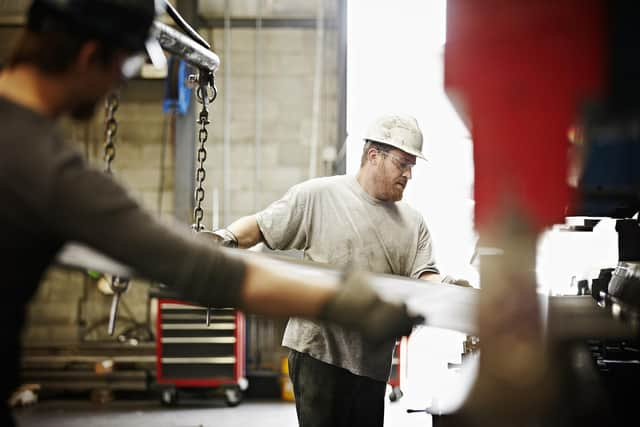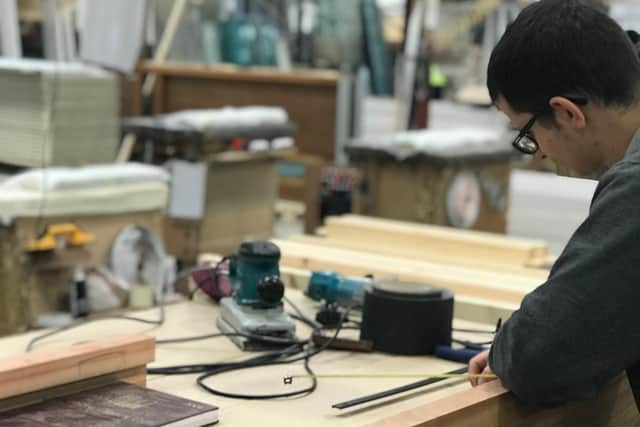Wigan manufacturers look to capitalise on home improvement boom
and live on Freeview channel 276
The firms, which produce homeware including beds and sofas, have faced challenges following the pandemic, Brexit complications and rising inflation.
Despite this there has been substantial growth in demand for interior design as lockdown turned our focus towards upgrading homes.
Advertisement
Hide AdAdvertisement
Hide AdThis looks set to continue in 2022 giving manufacturers a significant opportunity, the UK furniture market is already worth £14bn and thanks to the renovation boom, the industry is projected to grow by three per cent this year.


Several enterprises around the borough are among 140 teaming up with Made Smarter, a government funded scheme, in their Adoption Programme. By tapping into digital transformation workshops and technology expertise the businesses aim to cash in on changing trends.
Companies involved include Homestyle, Suscom Industries and Impact Kitchen and Bedrooms based in Wigan, while Lynn Lloyd Furnishings of Leigh are also hoping to prosper as a result of the programme.
The digital specialists have released a handbook detailing their strategy and how previous clients have benefitted from their guidance.


Advertisement
Hide AdAdvertisement
Hide AdCompiling a list of the top five technology trends across the industry and outlining how these methods can benefit the efficiency of operations.
While the digital skillgap can’t be ignored, it can be addressed. By using technology, workforces can upskill with virtual training. Methods such as Augmented Reality replicates real life settings and work challenges, allowing employees to access training without it disrupting production as it usually would.
Success implementing a digital strategy can be seen in the story of Panaz who partnered up with Made Smarter to streamline its fabrics company. By limiting the number of touchpoints between consumer and business they achieved a faster speed to market: the process that previously lasted two weeks has been cut to just one or two days.
Donna Edwards, programme director for Made Smarter’s Adoption Programme in the North West, said: "While UK manufacturing is facing a challenging time, it also presents an opportunity to innovate and transform.
Advertisement
Hide AdAdvertisement
Hide Ad"Digital tools can help manufacturers make marginal savings, set themselves apart from competitors in a volatile time,make products quicker, affordable and more efficiently..
“Working with Made Smarter we are helping businesses introduce technologies incrementally, making the most of funding and support to minimise the impact on budgets.
“To help demystify digitalisation and help SMEs to their first step, we have produced some vital guidance as well as explain why implementing digital tools is such a priority in this sector.”
Jonathan Hindle, chairman of the British Furniture Confederation, said: "The tremendous success of the Made Smarter Adoption Programme in the North West, and the support it is now offering to the sector in other UK regions, has demonstrated the value of targeted support for SME manufacturers to help them take those first steps on their digitalisation journeys.
Advertisement
Hide AdAdvertisement
Hide Ad"The UK furniture manufacturing industry has a global reputation for quality and innovation, combining skilled design and craftsmanship with cutting-edge technology. To maintain that achievement and ensure the UK remains competitive against global competition, manufacturers need to embrace current and emerging technologies, and the huge potential digitisation offers, as well as to raise the skills and productivity of the people who work in our sector to the highest level."
